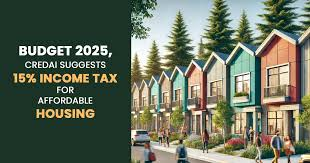Now Reading: Affordable Housing in Ajman: Opportunities and Tax Implications in 2025
-
01
Affordable Housing in Ajman: Opportunities and Tax Implications in 2025
Affordable Housing in Ajman: Opportunities and Tax Implications in 2025

Table of Contents
Ajman’s real estate market in 2025 continues to position itself as a hub for affordable housing within the UAE, offering significant opportunities for first-time buyers, expatriates, and investors seeking high returns at lower entry costs compared to Dubai and Abu Dhabi. With property prices 30–50% below Dubai’s, a projected 10% rental yield, and a 33% surge in transaction value in 2024 (AED 9 billion), Ajman’s affordable housing segment is thriving.
This growth is supported by Ajman Vision 2030, infrastructure development, and investor-friendly policies, including 100% foreign ownership. However, navigating tax implications, such as VAT and corporate tax introduced in 2023, is critical for stakeholders. Below is a detailed analysis of affordable housing opportunities in Ajman, key tax implications in 2025, and connections to the broader UAE real estate trends, including the Ajman property market outlook, sustainable living, and taxation frameworks previously discussed.

Opportunities in Ajman’s Affordable Housing Market (2025)
- Competitive Pricing and High Returns:
- Affordable Entry Points: Apartments in Ajman start at AED 300,000–400,000 (e.g., Al Nuaimiya, Hay Al Helio 2), and villas begin at AED 1.2 million, compared to Dubai’s AED 2.52 million average for apartments in Dubai Marina. This affordability attracts first-time buyers and budget-conscious investors.
- Rental Yields: Ajman offers a projected 10% rental yield in 2025, up from 9% in 2024, outpacing Dubai’s 6.5% and Sharjah’s 7.5%. For example, Ajman Downtown apartments (AED 371,000) yield 9.44% with annual rents of AED 27,000–47,000.
- Capital Appreciation: A 26.6% increase in transaction value in Q1 2024 (AED 4.3 billion) and 41% growth in rental contract value (AED 1.355 billion) indicate strong growth potential, driven by demand for affordable housing.
- Expatriate and Family Demand:
- Growing Expat Population: Ajman’s low cost of living and proximity to Dubai (30–45 minutes via Sheikh Mohammed Bin Zayed Road) attract expatriates, who make up a significant portion of the UAE’s 88% expat population. This drives demand for affordable rentals and purchases.
- School Proximity: As noted in the impact of international schools, properties near schools like Ajman Academy and City School Ajman command 10–15% price premiums, boosting demand in areas like Al Yasmeen and Al Nuaimiya. Affordable housing near schools appeals to expatriate families, mirroring Dubai’s trends.
- Rental Appeal: Affordable rentals (e.g., AED 27,000/year in Al Nuaimiya) cater to young professionals and families, aligning with Dubai’s 13% long-term rental growth.
- Off-Plan and Flexible Payment Plans:
- Off-Plan Dominance: Similar to Dubai’s 60% off-plan sales, Ajman’s off-plan projects, such as Al Ameera Village Phase 3 and Ajman One Phase 2, account for a significant share of transactions. These offer flexible payment plans (e.g., 1% monthly installments), making homeownership accessible.
- Investment Potential: Off-plan properties in Hay Al Helio 2 (apartments from AED 300,000) provide high ROI (up to 11.71% in Yasmin Village), appealing to investors seeking capital gains and rental income.
- Infrastructure and Urban Development:
- Ajman Vision 2030: Investments in roads, public transport, and community facilities enhance Ajman’s appeal as a residential hub. Projects like Ajman Corniche and Al Zorah improve connectivity and lifestyle offerings.
- Economic Growth: A 6–8% GDP growth forecast, driven by non-oil sectors (real estate, tourism, manufacturing), supports a stable housing market, attracting investors and residents.
- Sustainability in Affordable Housing:
- Green Features: As highlighted in sustainable living trends, affordable developments in Al Zorah and Al Ameera Village incorporate energy-efficient designs, such as low-flow fixtures and insulation, reducing utility costs by 20–25%. While less prevalent than Dubai’s 35% green-certified sales, these features enhance long-term affordability.
- Community Appeal: Developments with green spaces and parks (e.g., Al Yasmeen) align with family preferences, boosting rental and sales demand, similar to Dubai’s biophilic design trends.
- Foreign Investment Opportunities:
- 100% Foreign Ownership: Ajman’s freehold policy, introduced in 2018, led to 5,139 foreign transactions worth AED 6.048 billion in H1 2024 (88% growth from 2023), attracting investors from India, Pakistan, and Europe.
- Visa Incentives: While Ajman does not offer a direct equivalent to Dubai’s Golden Visa (AED 2 million threshold), investors can combine multiple affordable properties to meet visa requirements or secure 5-year renewable visas, encouraging long-term investment.
- Free Zones: The Ajman Free Zone (AFZ) supports commercial affordable housing projects (e.g., worker accommodations) with 100% ownership and tax benefits, drawing institutional investors.
Tax Implications for Affordable Housing in 2025

- Value Added Tax (VAT):
- Residential Properties: As noted in the VAT overview, sales and leases of residential properties are VAT-exempt, reducing costs for buyers and tenants. For example, an apartment in Al Nuaimiya (AED 371,000) or a villa in Al Yasmeen (AED 1.2 million) incurs no VAT on purchase or rent, enhancing affordability.
- Commercial Properties and Services: Commercial property sales/leases and real estate services (e.g., brokerage, consultancy) are subject to 5% VAT. For instance, a AED 50,000 brokerage fee for an affordable housing transaction incurs AED 2,500 VAT.
- VAT Registration: Businesses, including real estate agencies and freelancers, with taxable supplies exceeding AED 375,000 must register with the Federal Tax Authority (FTA) via the EmaraTax portal (www.tax.gov.ae). Voluntary registration is available for supplies between AED 187,500–375,000 to recover input VAT.
- Input VAT Recovery: Developers can recover input VAT on construction costs for commercial projects (e.g., retail spaces in Ajman Downtown) but not for residential affordable housing, requiring careful expense allocation.
- eInvoicing: The proposed eInvoicing system (consultation until February 27, 2025) mandates digital invoices for taxable transactions, impacting agents handling affordable housing deals.
- Corporate Tax:
- Standard Rate: Introduced in June 2023, a 9% corporate tax applies to taxable income above AED 375,000 for businesses, including real estate agencies, developers, and freelancers involved in affordable housing. Income below this threshold is taxed at 0%.
- Registration Requirement: Businesses with turnover exceeding AED 1 million must register with the FTA by March 31, 2025, or face a AED 10,000 penalty. This applies to agents earning commissions from affordable housing sales in Hay Al Helio 2 or Al Nuaimiya.
- Free Zone Benefits: Qualifying Free Zone Persons (QFZPs) in Ajman Free Zone enjoy 0% corporate tax on qualifying income (e.g., international real estate services), but mainland income (e.g., local affordable housing transactions) is taxable at 9%. Compliance with Economic Substance Regulations (ESR) is required.
- R&D Tax Credits: As discussed in sustainable living trends, 30–50% tax credits (effective 2026) are available for R&D in sustainable technologies, benefiting developers incorporating green features in affordable projects like Al Ameera Village.
- Tax Compliance and Record-Keeping:
- Filing Deadlines: VAT returns are filed quarterly (due within 28 days of the period’s end, e.g., April 28, 2025, for Q1). Corporate tax returns are due within nine months of the financial year-end (e.g., September 30, 2025, for December 31, 2024).
- Records: Businesses must maintain IFRS-compliant financial records for five years, including invoices and contracts, auditable by the FTA.
- Ultimate Beneficial Owner (UBO) Disclosure: Licensed businesses (e.g., real estate agencies) must submit and update UBO information, ensuring transparency for affordable housing transactions.
Implications for Stakeholders

- First-Time Buyers and Tenants:
- Cost Savings: VAT-exempt residential sales and leases reduce costs, making apartments in Al Nuaimiya (AED 27,000/year rent) or villas in Al Yasmeen (AED 60,000–80,000/year) affordable for expatriates and locals.
- School Proximity: Properties near Ajman Academy or City School Ajman offer 10–15% price premiums, providing value appreciation for buyers and stable rental demand for tenants, akin to Dubai’s school-driven trends.
- Lifestyle Appeal: Affordable developments with green spaces and modern amenities (e.g., Al Ameera Village) align with family preferences, boosting demand.
- Investors:
- High ROI: 10% rental yields and 26.6% transaction growth make affordable housing in Ajman Downtown and Hay Al Helio 2 lucrative, especially for off-plan investments (up to 11.71% ROI in Yasmin Village).
- Visa Strategy: Combining multiple properties (e.g., apartments at AED 300,000 each) to meet the AED 2 million Golden Visa threshold offers residency and income potential.
- Tax Benefits: VAT exemptions and 0% corporate tax for Free Zone investors enhance returns, though mainland income requires careful tax planning.
- Developers and Real Estate Professionals:
- Development Opportunities: Affordable projects like Ajman One Phase 2 benefit from high demand and R&D tax credits for green features, reducing costs.
- Compliance Costs: VAT (5% on services) and corporate tax (9% above AED 375,000) increase administrative burdens, requiring eInvoicing and IFRS-compliant records.
- PropTech Advantage: Digital platforms like Ajmanproperties.ae and Bayut, similar to Dubai’s PropTech trends, streamline transactions and enhance transparency.
- Market Dynamics:
- Growth Potential: Ajman’s affordability and 6–8% GDP growth forecast support a robust housing market, with 5,139 foreign transactions in H1 2024 signaling investor confidence.
- Challenges: Limited inventory in hotspots like Hay Al Helio 2 may drive price increases, reducing affordability. Compliance with eInvoicing and tax registration adds complexity for small businesses.
Opportunities
- Affordable Pricing: Apartments from AED 300,000–400,000 (Al Nuaimiya, Hay Al Helio 2); villas from AED 1.2M (Al Yasmeen), 30–50% below Dubai’s prices.
- High ROI: 10% rental yields (up from 9% in 2024), with Ajman Downtown (9.44%) and Yasmin Village (11.71%) leading. Rents: AED 27,000–47,000/year (apartments), AED 60,000–80,000/year (villas).
- Expat Demand: Proximity to schools (e.g., Ajman Academy) adds 10–15% price premium; low living costs attract families.
- Off-Plan Investments: Projects like Al Ameera Village Phase 3 offer flexible payment plans, high capital gains.
- Infrastructure: Ajman Vision 2030 enhances connectivity, urban amenities (e.g., Ajman Corniche).
- Sustainability: Green features in Al Zorah, Al Ameera Village (e.g., low-flow fixtures) reduce costs by 20–25%.
- Foreign Ownership: 100% freehold, 5,139 foreign transactions (AED 6.048B, H1 2024). Ajman Free Zone supports commercial projects.
Tax Implications
- VAT:
- Residential sales/leases exempt, enhancing affordability.
- 5% VAT on commercial properties and services (e.g., AED 2,500 on AED 50,000 brokerage fee).
- Mandatory registration for supplies >AED 375,000; voluntary for AED 187,500–375,000.
- eInvoicing proposed (consultation until February 27, 2025) for taxable transactions.
- Corporate Tax:
- 9% on income >AED 375,000; 0% below. Register by March 31, 2025, if turnover >AED 1M (AED 10,000 penalty for non-compliance).
- Free Zone: 0% tax on qualifying income (e.g., international services), mainland income taxable.
- R&D credits (30–50%, effective 2026) for green tech investments.
- Compliance: Quarterly VAT returns (e.g., April 28, 2025, for Q1); corporate tax returns within nine months of year-end. Maintain IFRS records for five years; submit UBO disclosures.
Implications
- Buyers/Tenants: VAT exemptions and low prices make Al Nuaimiya, Al Yasmeen affordable; school proximity boosts value.
- Investors: 10% yields, off-plan ROI (up to 11.71%), and visa eligibility via multiple properties.
- Developers/Agents: R&D credits reduce costs; VAT and corporate tax compliance add complexity.
- Challenges: Limited inventory, eInvoicing adoption, and competition with Dubai.
Recommendations
- Buyers: Target school-adjacent areas (Al Yasmeen, Al Nuaimiya) for value and rental demand.
- Investors: Focus on off-plan projects (Hay Al Helio 2, Al Ameera Village) for high ROI; combine properties for visa eligibility.
- Developers: Use green tech for R&D credits; leverage PropTech (Ajmanproperties.ae).
- Compliance: Register for VAT and corporate tax by March 31, 2025; adopt eInvoicing.
- Research: Monitor www.ajmanre.gov.ae, Bayut, and consult Al Zorah Development.
Resources
- Department of Land and Real Estate Regulation: www.ajmanre.gov.ae
- Ajman Free Zone: www.ajmanfreezone.ae
- PropTech: Ajmanproperties.ae, Bayut
- Developers: Ajman One, Al Zorah
Conclusion
Ajman’s affordable housing market in 2025 offers significant opportunities, with properties starting at AED 180,000, 10% rental yields, and strong demand from expatriates and families near schools like Ajman Academy. Supported by Ajman Vision 2025, infrastructure growth, and 100% foreign ownership, areas like Ajman Downtown, Al Nuaimiya, and Al Ameera Village are investment hotspots. VAT exemptions on residential transactions and R&D tax credits enhance affordability, but stakeholders must navigate 5% VAT on services, 9% corporate tax, and eInvoicing compliance. Investors should target off-plan projects and leverage Ajmanproperties.ae, consulting developers like Ajman One or Al Zorah Development for strategic opportunities.
WATCH MORE:https://www.instagram.com/shikha_shack/reel/DG5XA_Vvdrm/?locale=hi_IN
READ MORE: Ajman Property Market Outlook 2025: Growth Drivers and Investment Hotspots






















